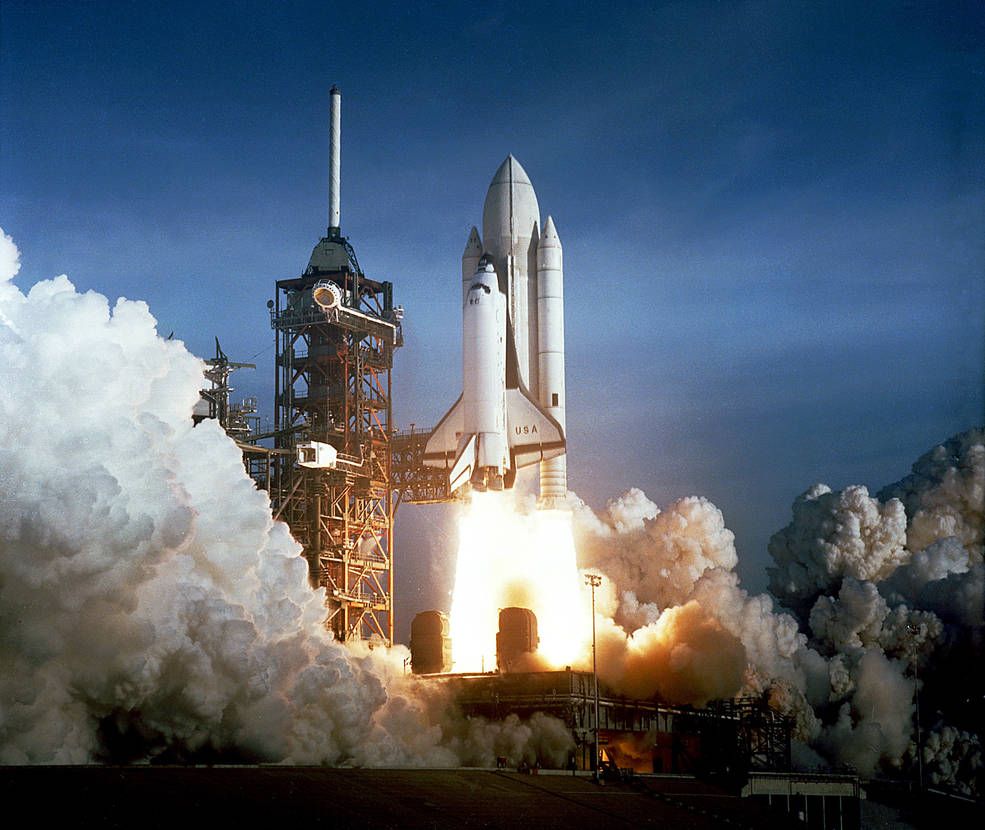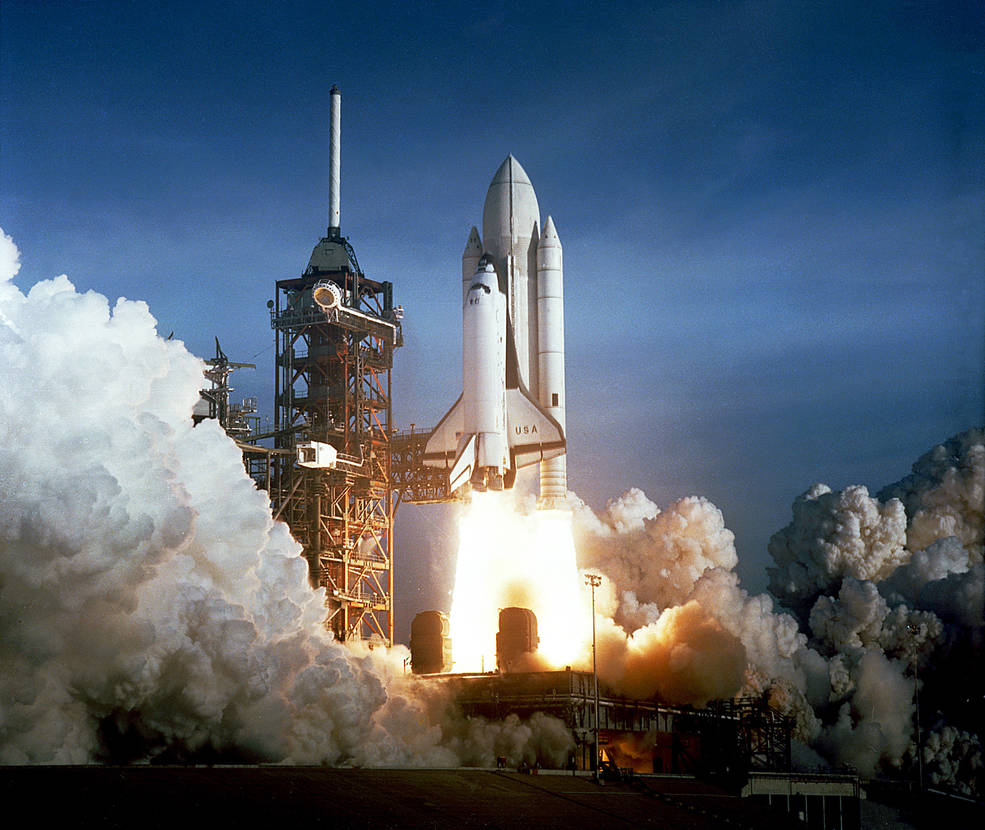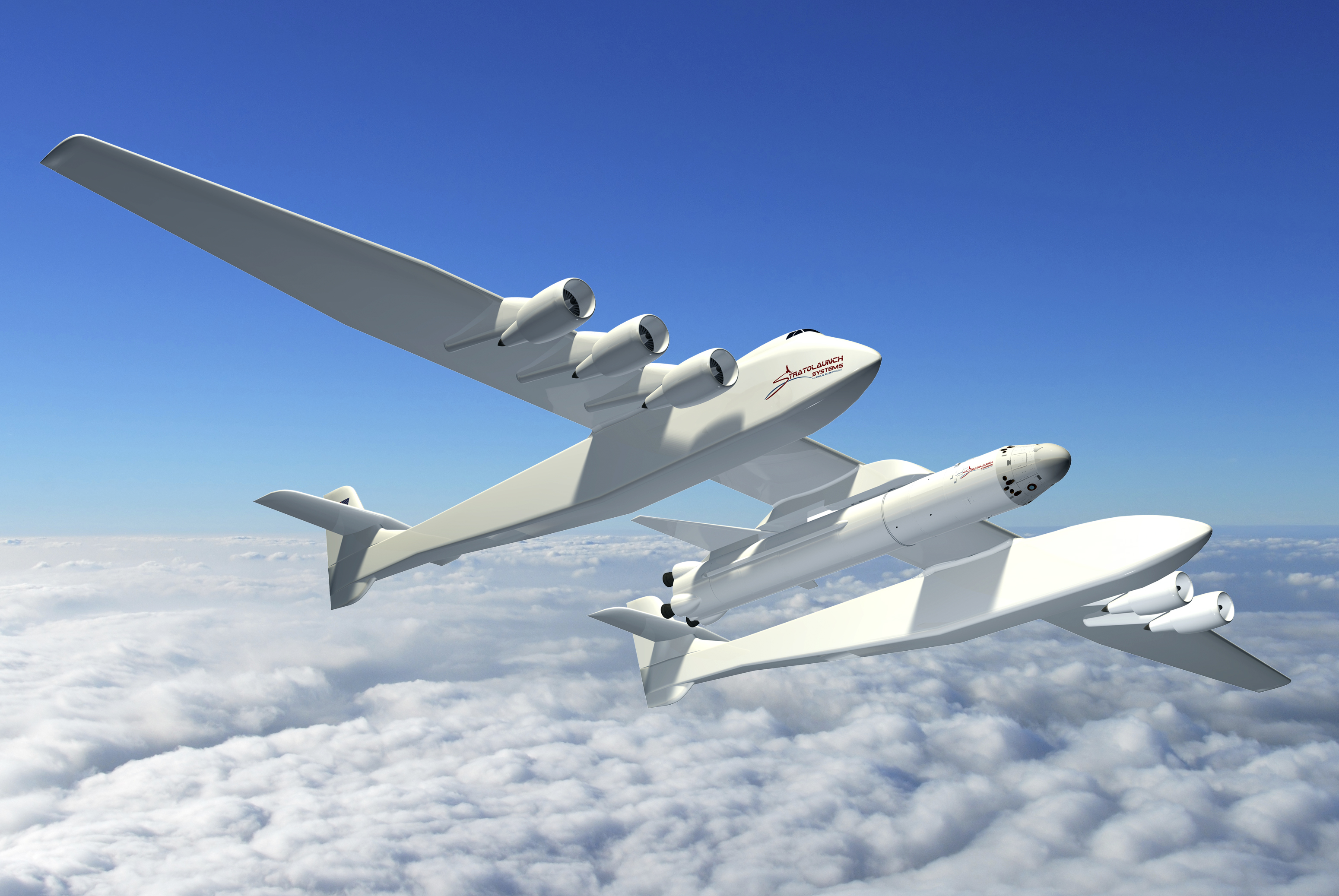

How exactly does a spaceship get into space?
Thanks for the question, Mathilde! It isn't easy to get to space, and there are a few steps to it. Let's think about where space begins.
Some time ago, a number of experts decided on one point above us as the point where space begins. They marked it with an invisible line.
The line goes all around the Earth and is 100 kilometers above us. A normal aircraft flies only about 10 km above the ground.
What is space?
There are many reasons we can't just use an aircraft. The higher up we go, the less air there is and the less oxygen there is.
The aircraft is powered by the engine. Like car engines, aircraft engines need oxygen to work. The air we breathe is made up of 21% oxygen.
The aircraft use big fans on either side to suck in the air. They mix the air with jet fuel and then burn it to make the air hotter. The hot air shoots out the back at a very high speed, pushing the aircraft forward.

An aircraft trying to fly too close to space would be like a person trying to breathe in a room with no air in it.
We need rockets to get to space. The difference between rocket engines and jet engines is that rocket engines don't need to get oxygen from the air. They carry their own oxygen with them.
It's bad since rocket engines have to carry something that an aircraft can easily get from all around it. There is less room on a rocket for passengers and luggage.
Being able to take oxygen along for the journey means rockets can work higher up than most aircraft.
Similar to an aircraft's jet engine, rocket engines work by shooting hot gas out from the back of the rocket. The rocket is pushed forward as the gas is pushed back.
This is an example of a rule in science called the Third Law of Motion. Every action has an equal and opposite reaction according to this law.
You can make a very basic rocket at home with some help from an adult. If you blow up a balloon and let it go without tying off the end, the air inside will shoot out and send it flying around the room, just like a badly controlled rocket!
The Conversation published this article.
We encourage you to follow us on social media.